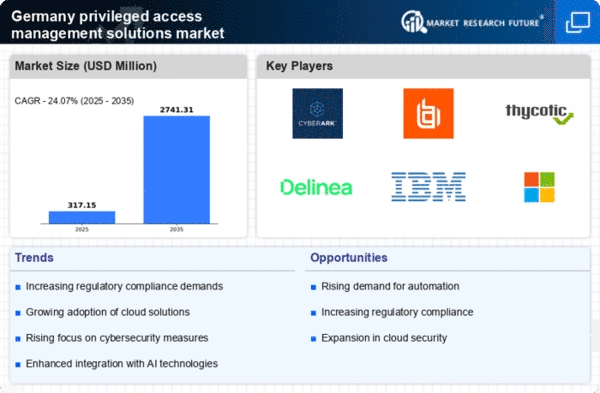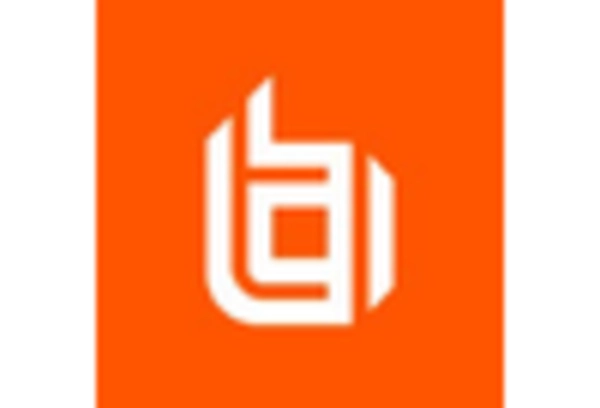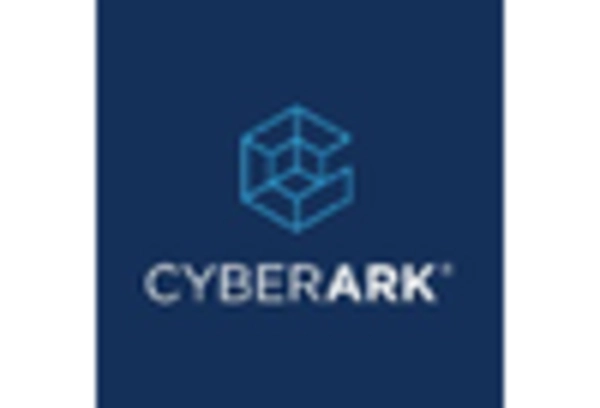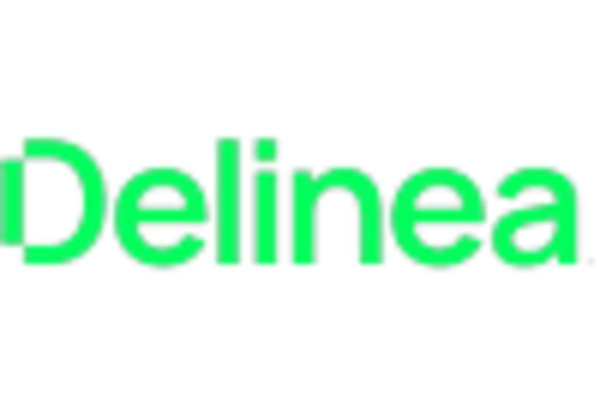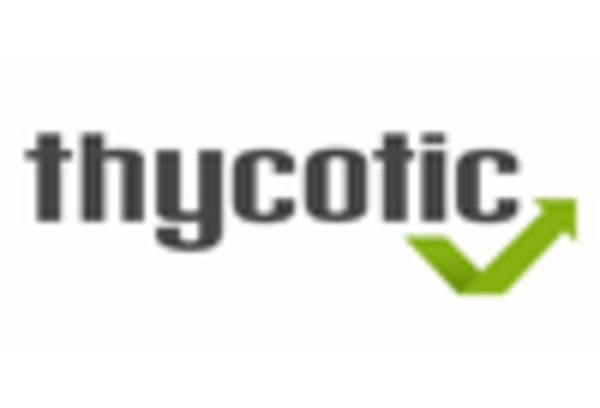Rising Cybersecurity Threats
The privileged access-management-solutions market is experiencing heightened demand due to the increasing frequency and sophistication of cyber threats. In Germany, organizations are prioritizing the protection of sensitive data and critical systems, leading to a surge in investments in cybersecurity measures. According to recent reports, the cybersecurity market in Germany is projected to grow at a CAGR of 10.5% from 2023 to 2028. This growth is driving the adoption of privileged access management solutions, as businesses seek to mitigate risks associated with unauthorized access and data breaches. The need for robust security frameworks is compelling organizations to implement advanced solutions that can effectively manage and monitor privileged accounts, thereby enhancing overall security posture.
Increased Focus on Data Privacy
The privileged access-management-solutions market is significantly influenced by the growing emphasis on data privacy regulations in Germany. With the implementation of the General Data Protection Regulation (GDPR), organizations are compelled to adopt stringent measures to protect personal data. This regulatory environment is fostering a heightened awareness of the importance of managing privileged access to sensitive information. Companies are investing in solutions that ensure compliance with data protection laws, thereby reducing the risk of penalties and reputational damage. The market for privileged access management solutions is projected to grow by 15% annually as organizations strive to enhance their data privacy practices and secure their information assets.
Digital Transformation Initiatives
As organizations in Germany embark on digital transformation journeys, the privileged access-management-solutions market is witnessing significant growth. The integration of digital technologies into business processes necessitates a reevaluation of access controls and security protocols. Companies are increasingly recognizing that traditional security measures may not suffice in a digital landscape. This shift is reflected in the growing investment in privileged access management solutions, which are essential for safeguarding digital assets. The market is expected to reach €1.5 billion by 2026, driven by the need for secure access to cloud services, applications, and data. Consequently, organizations are prioritizing the implementation of comprehensive access management strategies to support their digital initiatives.
Emerging Threat of Insider Attacks
The privileged access-management-solutions market is increasingly shaped by the rising threat of insider attacks in Germany. Organizations are becoming acutely aware that employees with privileged access can pose significant risks to data security. This realization is prompting companies to implement more stringent access controls and monitoring mechanisms. The market is responding to this need, with a projected growth rate of 12% as businesses invest in solutions that provide visibility and control over privileged accounts. By focusing on mitigating insider threats, organizations aim to protect their sensitive information and maintain trust with customers and stakeholders. This trend underscores the critical role of privileged access management in safeguarding against internal vulnerabilities.
Shift Towards Cloud-Based Solutions
The transition to cloud-based infrastructures is reshaping the privileged access-management-solutions market in Germany. As businesses increasingly migrate their operations to the cloud, the need for effective access management becomes paramount. Cloud environments present unique challenges, including the need for secure access to multiple platforms and services. Organizations are recognizing that traditional on-premises solutions may not adequately address these challenges. Consequently, there is a growing demand for cloud-native privileged access management solutions that can seamlessly integrate with existing cloud services. This trend is expected to drive market growth, with estimates suggesting a potential increase of 20% in adoption rates over the next few years as companies seek to enhance their security frameworks in cloud environments.


